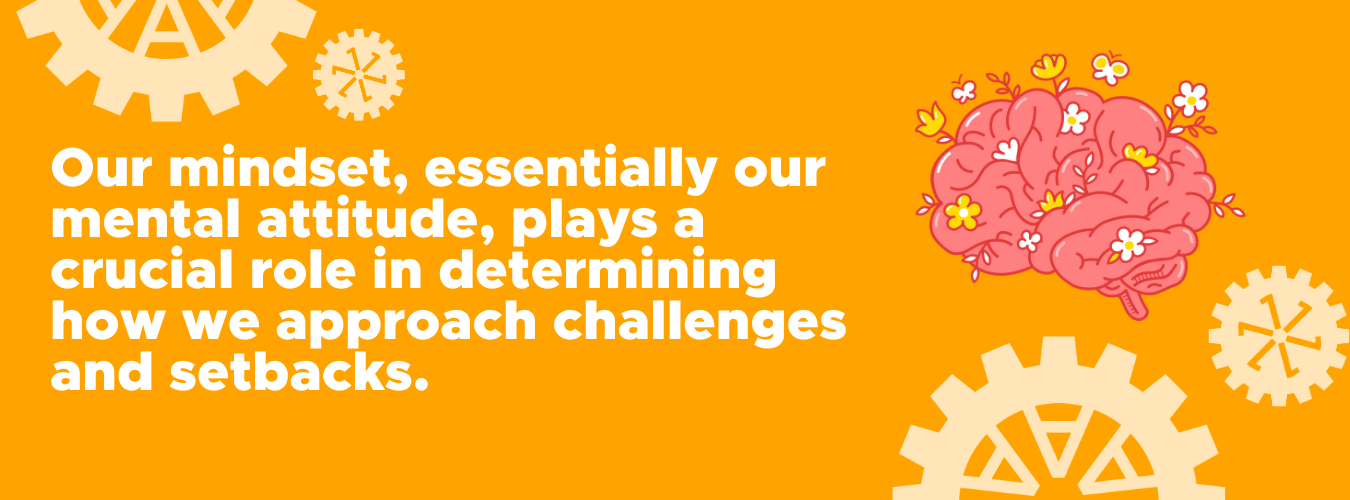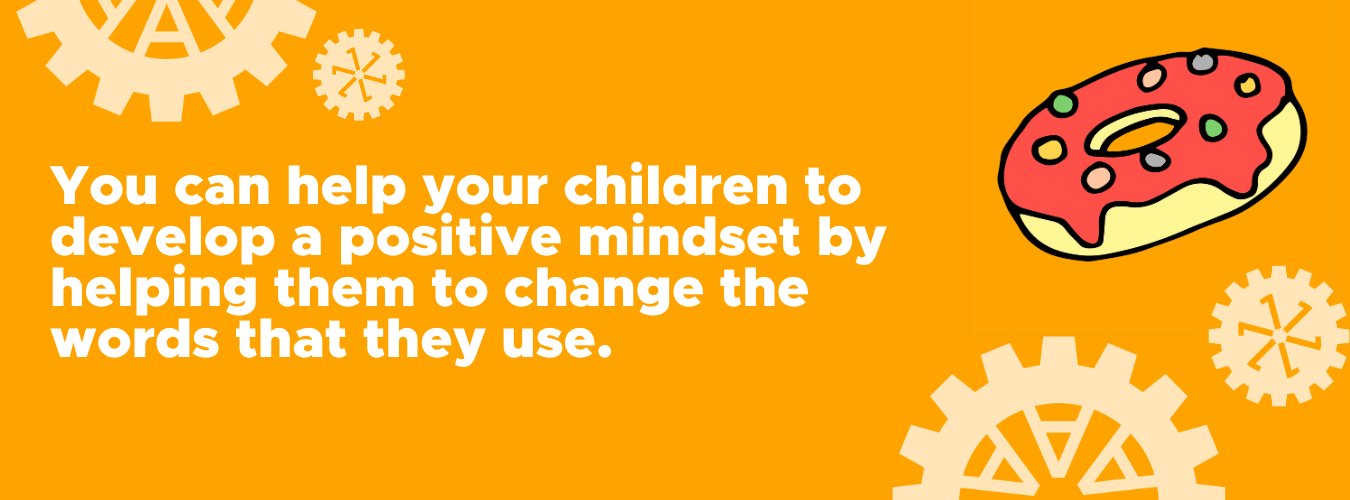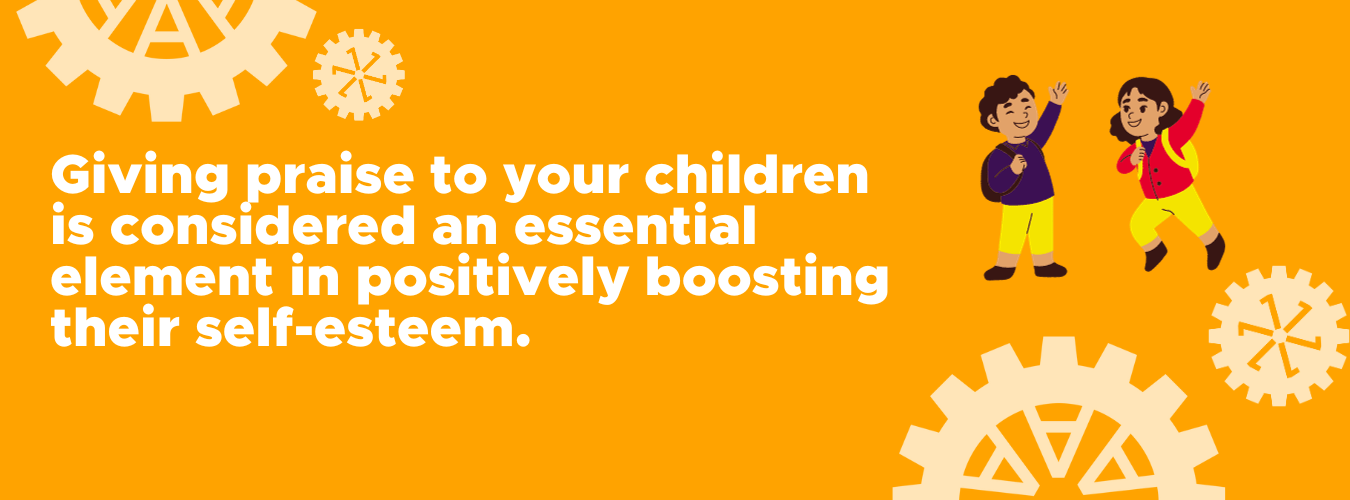Change your words, change your world

I’m sure you’ve heard of this: ‘If you tell a person often enough that they are stupid, they will soon begin to believe it.’ The words we use, whether talking to others or ourselves, have a profound effect on our mindset.
Mindset is, in effect, how you see the world and yourself in the world. With a negative mindset, the world seems difficult; small setbacks feel like failures; new situations feel daunting; trying feels hopeless. With a positive mindset, mistakes are for learning from; something new is an exciting challenge; hard work brings results; the world is a great place to be.
Is your child struggling to keep up with schoolwork? Are they falling behind? Are they bored in class? Or are you looking for extension work for your child? Check out our eBook to learn more about how we help your child improve academically and build confidence through our in-centre after-school tuition.
Negative vs. Positive Mindset: A World of Difference
Notice the difference in language used in describing the negative versus the positive. Changing your mindset can be brought about simply by changing the words that you use. Your choice of words, talking to yourself and your children, is an important way in which you can create a happy worldview.
Our mindset, essentially our mental attitude, plays a crucial role in determining how we approach challenges and setbacks. A negative mindset can make the world seem insurmountable, turning small setbacks into colossal failures and new experiences into daunting obstacles. On the other hand, a positive mindset enables us to view mistakes as opportunities for growth, challenges as exciting prospects, and hard work as a pathway to success.

The Influence of Popular Culture: The Simpsons and Language
Language is the key to transforming a negative mindset into a positive one. By choosing our words carefully, whether in our self-talk or when communicating with others, we can create a happier and more optimistic worldview. Consider the impact of the words we commonly use.
For instance, the popular ‘The Simpsons’ cartoon show introduced phrases like ‘duh,’ which, while seemingly harmless, fosters a culture of put-downs and negative self-admonishment. Such language, often masked as humour, can permeate our daily interactions, influencing how we perceive ourselves and others. Combining this sort of language with enjoyable humour has made it ‘okay’. However, this sort of language creates a negative mindset.
You can help your children to develop a positive mindset by helping them to change the words that they use. Here are some good examples of how to turn around words you might often hear children saying: ‘This is too hard’ becomes ‘This may take some time and effort.’ ‘I made a mistake’ becomes ‘Mistakes help me improve.’ These are some simple phrases you can teach your children and encourage them to use.
One great little word that you can help your children to use is ‘yet.’ When they say ‘I can’t do this’ encourage them to add ‘yet.’ This creates a 180-degree turnaround from a negative, hopeless feeling to a positive, forward-looking view.
Words are powerful and our brains believe what we hear. Help your children, and yourself, to hear the right sorts of words that are going to create a great world in which they are happy to be and consequently, in which they will succeed.

The Impact of Praise
Giving praise to your children is considered an essential element in positively boosting their self-esteem. But did you know that your choice of language, again, has a profound effect on their mindset? Praising cleverness with phrases like: ‘You’re so smart’; ‘You’re good at this’ sets them up for failure when they make a mistake, showing that they are not so smart at all, and leading to the ‘I’m no good at this’ and ‘Why bother?’ negative mindset.
Instead, by praising their effort with phrases like: ‘You deserve those good results after all the hard work you put in’; and ‘I’m proud of the way you stuck at that’ you will be reinforcing the language that creates a positive mindset. Praise is a key ingredient of the success that our students experience at NumberWorks’nWords, and we train our tutors to be aware of these different types of praise and to use phrases that acknowledge and reward effort.

The Role of Parents: Nurturing a Positive Mindset in Children
As parents, it is our responsibility to instil a positive mindset in our children. Teaching them to replace discouraging phrases like ‘This is too hard’ with empowering statements such as ‘This may take some time and effort’ can make a world of difference.
Encouraging the use of the word ‘yet’ can transform a hopeless declaration like ‘I can’t do this’ into a hopeful acknowledgment of future potential. By recognising their efforts rather than labelling them as inherently ‘smart’ or ‘talented,’ we reinforce the importance of hard work and perseverance.
At NumberWorks'nWords, we understand the significance of positive reinforcement. Our tutors are trained to use language that acknowledges and rewards effort, fostering a growth mindset among our students. By praising the dedication and persistence displayed by our learners, we help them realise the value of their hard work, setting the stage for future success.
Words hold immense power in shaping our thoughts, attitudes, and ultimately, our destinies. By being mindful of the language we use and encouraging positive self-talk and interactions, we can create a world where individuals, especially children, feel empowered, confident, and capable of overcoming any challenge.
So, let’s change our words and change our world for the better, creating a positive, nurturing environment where everyone can thrive.




